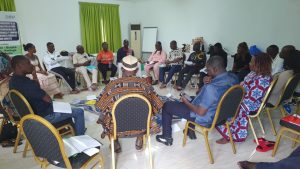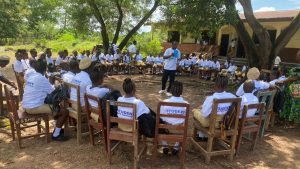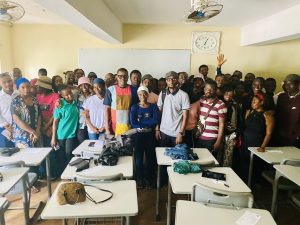The signed MOU entails a partnership to launch a 6-month certification course to train a select cohort of community stakeholders on indigenous approaches to transitional justice in the three Nigerian states most hit by the Boko Haram insurgency – Borno, Adamawa and Yobe. The course will be based on a Manual developed by GARCB titled Sulhu Sai Da Adalci (Reconciliation Requires Justice). The MoU will facilitate the training of sixty (60) participants for the next two years up to July 2027. Using the training-the-trainers approach, it is expected that at the end of the program the sixty beneficiaries will be deployed to 9 selected communities across the three states for a step-down training on Sulhu dialogue as a pathway of fostering social cohesion, reconciliation and sustainable peace to address lingering problems of trust deficit and broken social cohesion in the wake of the insurgency. The program is expected to reached over 1000 participants.
The training project feeds into the institutionalized Borno Model for Transitional Justice which aims to deradicalize, rehabilitate and reintegrate ex-Boko Haram combatants while preparing survivor communities to return to their ancestral homes. The recent mass surrender of former Boko Haram associates and their participation in the DRR program have intensified community and victim resentment due to the absence of reparations. This highlights the need for local-level dialogue to address community misconceptions and educate at-risk youth on alternative narratives to break the conflict cycle. The expected outcome of the GACRB-CPDDS partnership is to strengthen the knowledge, capacity and skills of beneficiaries to become community-based peace interlocutors, contribute to the body of knowledge on localization and community ownership of transitional justice process and ensure the sustainability of initiatives beyond the ATJLF-GACRB grant-making partnership.



